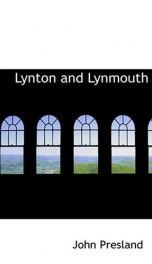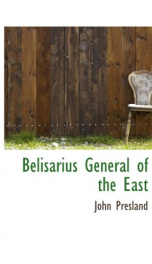Lynton and Lynmouth

DEVONSHIREThe original Celtic name for Devonshire, the name used by the Britonswhom Caesar found here when he landed, was probably "Dyfnaint," for aLatinized form of it, "Dumnonia" or "Damnonia," was used by DiodorusSiculus when writing of the province of Devon and Cornwall in the thirdcentury A.D. So that the name by which the men of Devon call theircountry is the name by which those ancient men called it who erectedthe stone menhirs on Dartmoor, and built the great earth-camp ofClovelly Dykes, or the smaller bold stronghold of Countisbury. Atleast, conjecturally this is so, and it is pleasant to believe it, forit links the Devon of our own day, the Devon of rich valleys and windymoors, the land of streams and orchards, of bleak, magnificent cliffand rock-guarded bay, of shaded combe and suave, fair villages, in anunbroken tradition of name and habitation with the men of that silentand vanished race.Up and down the length of England, from the Land's End to theNorthumbrian dales, lie the traces of these far-off peoples whose verynames are faint guesses preserved only in the traditions of localspeech. Strangely and suddenly we come upon the evidence of their lifeand death: here a circle of stones on a barren moor or bleak hilltop,there a handful of potsherds or a flint arrowhead; sometimes, indeed,though rarely, the bones of their very bodies, laid aside inearth-barrows or stone coffins for this unknown length of years. Andthere the most unreflective among us feels a sudden awe and wonder atthe momentary vision of the profound antiquity of this land in which welive, and for a few moments all desires and aims seem futile in face ofthis immemorial past.Only for a few moments, though, and then we step from the "DruidCircle," or turn away from the barrow, and the current of our everydaylife takes us up once more.Myself, I agree with Westcote. Westcote is a charming old gentleman ofKing James the First's time, who wrote a book called "A View ofDevonshire in 1630." In Chapter I he discusses the ancient name ofDevonshire much as I have done, but because in the seventeenth centuryyou must have a Latin or a Greek at your elbow to give yourespectability as a writer, he brings forward a formidable array ofauthorities--Ptolemaeus, Solinus Pylyhistor, and Diodorus Siculus.But, having had them make their bow before the reader, he remarks thatall these gentlemen lived "far remoted" from Devonshire, and weretherefore liable to error in the transmission of names; "for, in myopinion," says he, "those that declare the first names of strangecountries far remoted are as the poor which wear their garments allbepatched and pieced, whereof the pieces that are added are much morein quantity of cloth than the garment before, when it was first made."As an example of this error he instances the name of Peru. "When theSpaniards had conquered Mexico, and were purposing to proceed farther,their commander, in his manner, demanded of one of the natives he metwithal what the country was named, who answered, 'Peru,' by which nameit is known unto this day, which in his language was, 'I know not whatyou say.'" --This text refers to the Kindle Edition edition.
Info about the book
Author:
Series:
Unknown
ISBN:
0554394707
Rating:
5/5 (4)Your rating:
0/5
Languge:
English
Users who have this book
Users who want this book
What readers are saying
What do you think? Write your own comment on this book!
write a commentGenre
if you like Lynton and Lynmouth try:
Do you want to read a book that interests you? It’s EASY!
Create an account and send a request for reading to other users on the Webpage of the book!





